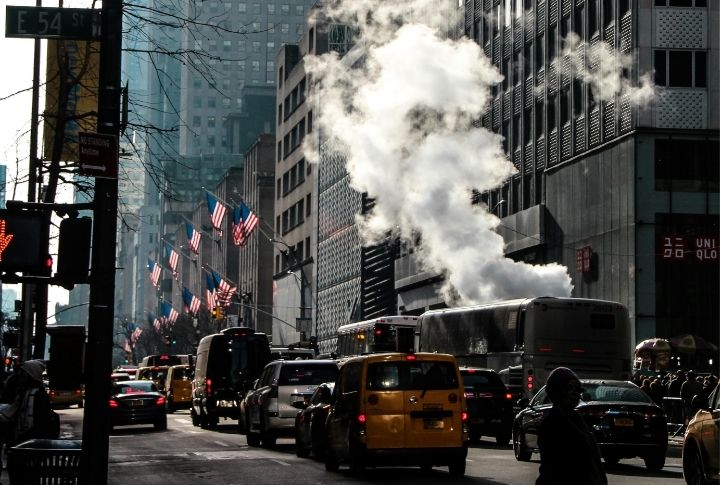
In a world with instant communication and abundant resources, it’s perplexing to see a rise in American unhappiness. Despite modern conveniences, people feel unfulfilled. Unhappiness has various contributing factors, such as societal pressures and economic challenges, that impact mental health. Here are 15 reasons U.S. citizens are depressed.
Economic Inequality

The disparity between the wealthy and the poor creates a sense of injustice and frustration. Many struggle with stagnant wages and rising living costs, leading to financial insecurity and stress, making it difficult for people to feel content and secure.
High Cost of Healthcare

The price of healthcare in the United States is a major source of stress and dissatisfaction. Many Americans face exorbitant medical bills and lack access to affordable health insurance. This financial burden can lead to helplessness and anxiety about the future.
Work-Life Imbalance

Americans often experience a poor work-life balance due to demanding job schedules and limited vacation time. The constant pressure to perform and long working hours leave little time for relaxation and personal pursuits. It can cause burnout, decreased job satisfaction, and a general sense of unhappiness.
Lack of Social Support

Social isolation and lack of community support are prevalent issues in the U.S. Many people feel disconnected from their neighbors and lack a strong support network. The sense of isolation can exacerbate feelings of loneliness and depression.
Mental Health Issues

Anxiety and depression are widespread in America. The stigma around mental health sometimes prevents individuals from seeking the help they need. Furthermore, limited access to mental health services and support can leave many feeling unsupported and overwhelmed.
Political Polarization

The country is experiencing conflicts between Democrats and Republicans, leading to increased tension and dissatisfaction among Americans. The current political climate fosters hostility and resentment, making it challenging to find common ground.
High Stress Levels

Financial concerns, job pressures, and societal expectations plague many Americans. Chronic stress can negatively affect mental health and physical health, which leads to issues such as anxiety, depression, and heart disease. The constant state of stress undermines overall happiness and well-being.
Unstable Job Market

American corporations have strict rules and regulations, but sometimes, these rules are harsh. Many workers fear losing their jobs and struggle with employment’s unpredictability. Work instability can lead to financial stress and a lack of long-term planning.
Environmental Concerns

Many Americans worry about environmental situations, such as climate change and pollution. The visible impacts on weather patterns, health, and local ecosystems create a sense of urgency and helplessness. The ongoing environmental crisis can generate anxiety and a feeling of powerlessness.
Inadequate Education System

A high school diploma and college achievement are essential to Americans. However, they deal with an inadequate education system, with disparities in funding and quality, leaving many Americans feeling disillusioned. The lack of equal educational opportunities hinders social mobility and perpetuates inequality.
Consumer Culture

The pervasive consumer culture in America promotes materialism and unrealistic expectations of happiness through possessions. Influencers online make people believe that they need expensive products. The constant drive for more can lead to dissatisfaction and emptiness when material goods fail to provide lasting fulfillment.
Poor Work Conditions

Low wages, lack of benefits, and inadequate job security impact many Americans. These unfavorable conditions can lead to job dissatisfaction and stress. The struggle to make ends meet while working in challenging environments contributes to unhappiness and discontent.
Lifestyle Choices

Unhealthy lifestyle choices, like lack of exercise, are prevalent in America. A sedentary lifestyle can be a cause of chronic health issues like obesity, muscle aches, and pains, which can decrease quality of life. The resulting physical health problem contributes to overall unhappiness, creating a vicious cycle.
Social Media Pressure

The pressure from social media to portray a perfect life can cause feelings of inadequacy and unhappiness. Constant comparison to others’ curated lives leads to low self-esteem and depression. The unrealistic standards social media sets can make individuals feel their lives are lacking.
Poor Diet

Research shows that 45% of deaths from diabetes, heart disease, and strokes are due to poor diets. American diet consists of processed foods and sugar, which can lead to depression and anxiety. Foods high in trans fats, sugar, and flour can affect the gut, where most of our mood-stabilizing hormone, serotonin, is produced. This suggests that a poor diet may contribute to unhappiness in Americans.


Comments
Loading…